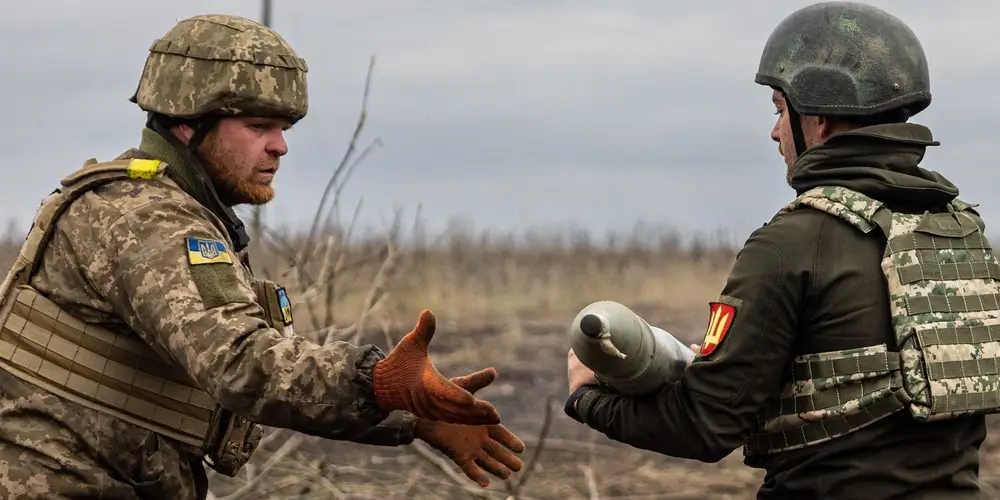Ukrainian special-operations units have played an important part in their country’s defense against Russia over the past 15 months.
But operating against an adversary that is larger and, in many cases, better-equipped has required Ukrainian special operators to learn to fight without the logistical “tethers” that many militaries, including the US and its allies, have gotten used to over the past several decades of warfare.
Many Ukrainian leaders were skeptical that Russia’s military would invade, even after months of buildup along Ukraine’s borders. When Russia launched its attack early on February 24, 2022, Ukraine’s government was caught off guard — but the Ukrainian military wasn’t.
Ukraine’s armed forces had been preparing for another war ever since Russia seized Crimea and stoked a separatist movement in the western Donbas region in 2014. Since then, Ukraine has waged a deadly low-intensity conflict against pro-Russia fighters and their Russian advisers in the Donbas.
Eight years of warfare taught the Ukrainians that a major Russian invasion would put extreme pressure on their logistics and that resupply of frontline units would be difficult, so the training provided by the US and other NATO countries has focused on the basics.
A well-trained force that excels in small-unit tactics and other basic military skills has an advantage over a larger but poorly trained adversary.
Ukrainian special operators knew from the beginning that they would be operating against a bigger adversary, and they tailored their tactics and training to meet that challenge.
What that means on the ground is that Ukrainian commandos have been ensuring that they have good intelligence and fire superiority — even if it is temporary — when conducting an operation. Even if the Russians have numerical superiority, a well-planned raid based on timely intelligence conducted by a well-trained force will likely succeed.
Fighting without tethers
Ensuring smooth logistics in a large conventional war isn’t easy. Even the US military has acknowledged that in a fight with China, it would face logistical difficulties and have limited ability to resupply its forces.
Fortunately for Ukrainian special operators, their supply lines are short — they are fighting on their home turf, after all. As a result, the Ukrainians are able to resupply their units much easier than the Russians, whose resupply efforts have been made more difficult by Ukraine’s deadly accurate long-range missile and artillery strikes.
Moreover, Russia lacks air superiority or consistent long-range precision fires, which are needed to attack Ukrainian logistical nodes reliably. A cruise missile or Shahed-136 drone might get through and hit a railway line or ammunition depot, but Ukrainian air-defense systems have been highly effective against Russian aerial wave attacks.
That doesn’t mean the Ukrainians have it easy. “The main thing you hear on the front lines is the Ukrainian military, like any large force in a big war, has internal distribution problems,” Michael Kofman, an expert on the Russian military at CNA, said on a podcast in early March, shortly after returning from a research trip to Ukraine.
While considerable amounts of Western aid is going to Ukraine, getting that aid to the frontline is complicated and the distribution is often uneven.
“Things enter Ukraine, but then all Ukrainian units have to find their way to getting those things, and there’s a lot of challenges in that,” Kofman said. “Anyone’s who ever seen a military operation — the best military operation, with US logistics — will see those issues where one unit has one thing, another one doesn’t.”
Insider understands that the Ukrainian special operators often resort to unconventional methods to overcome logistics challenges on the ground. For example, the use of non-military vehicles is standard procedure. Ukrainian commandos also use drones to resupply frontline units, though those drones can only carry limited amounts of ammunition and supplies and Russian defenses often mean those drones don’t last long.
Russia’s military also has potent electronic-warfare capabilities to intercept or jam communications. So Ukrainian special operators have been using a variety of methods to exchange information, including satellite phones and encrypted messaging apps like Signal, reflecting Ukrainian troops’ ability to integrate new technology. (Less secure methods, like WhatsApp, are also in use, however.)
By the nature of their mission, special-operations forces are mobile and don’t linger in one place. Commandos wouldn’t be responsible for taking and holding a strategically important target, like a town. Rather, they would gather intelligence or possibly spearhead an attack but eventually turn it over to a conventional unit.
On the other hand, the fact that special-operations units usually operate more independently and sometimes take on larger forces means they need more firepower, which translates into greater resupply demands.
Insider also understands that Ukrainian special operators have nothing to envy about their Russian adversaries. Months of Western military assistance means that Ukrainian special operators are equipped with the latest gadgets, including top-tier night vision, thermal optics, and small arms.
As the war drags on and the Ukrainian forces advance, Ukrainian special operators will continue to face logistical difficulties. However, their training, familiarity with the battlefield, and adherence to basic special-operations “truths” will see them through.
Source : INSIDER


